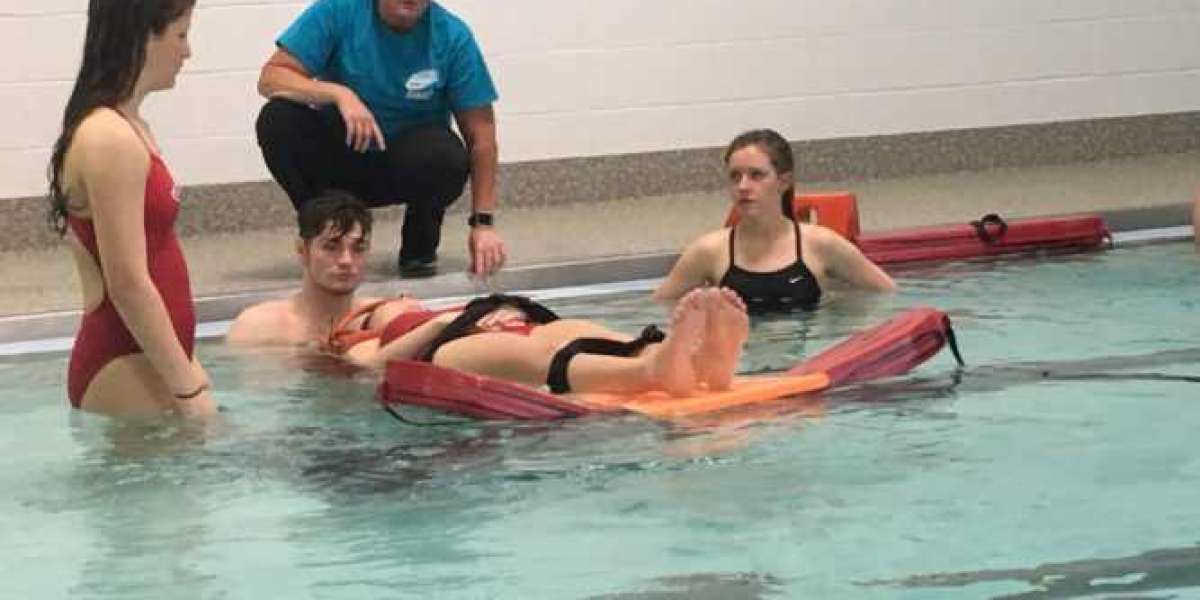As teens look for exciting and meaningful summer jobs or opportunities to make a difference in their communities, lifeguarding offers a rewarding and sport-related career path. With the ability to learn life-saving skills, improve physical fitness, and take on real responsibility, lifeguarding is an ideal fit for teenagers who want to blend their love of sports with a role that promotes public safety. But with many programs available, how do you choose the best lifeguard training for teens?
In this article, we’ll explore the top Best lifeguard training programs for teens, with a focus on the American Lifeguard Association (ALA), a leader in the industry. Whether you’re a parent or a teen looking to dive into this role, this guide will highlight what makes a great training program and how to choose the right one.
Why Lifeguard Training Is Perfect for Teens
Becoming a lifeguard requires a mix of mental and physical strength, making it an excellent option for active teens. From competitive swimmers to athletes in other sports, teens often possess the stamina and discipline needed to excel in lifeguard roles. In addition to the physical benefits, lifeguarding also teaches teens responsibility, quick decision-making, and teamwork.
For many teens, the role also provides an introduction to the workforce and gives them a chance to gain professional skills early on, making lifeguard training a valuable step toward building a resume and preparing for future careers.
What to Look for in a Lifeguard Training Program
Before diving into the list of the best programs for teens, it’s important to understand what makes a training program effective. Here are some key factors to consider:
Accreditation and Certification: Ensure the program is accredited by a reputable organization, such as the American Lifeguard Association. Certification from a recognized body not only prepares teens to handle emergencies but also makes them more employable at pools, beaches, and water parks.
Comprehensive Curriculum: A good training program should cover a wide range of skills, including CPR, first aid, water rescues, and the proper use of rescue equipment. Additionally, the course should include physical training components to help build strength and endurance.
Safety and Supervision: Since teens are still developing their skills, it’s crucial to choose a program that emphasizes safety. Look for programs that provide close supervision and experienced instructors to guide them through the training.
Flexibility and Accessibility: Many teens have busy schedules with school and extracurricular activities. The best lifeguard programs offer flexible scheduling options and are located near home, making it easier for teens to attend.
Hands-On Training: Lifeguarding is a physically demanding job, so hands-on practice is critical. Programs that offer real-life scenarios and in-water training prepare teens for what they’ll face on the job.
Now that you know what to look for, let’s explore some of the best lifeguard training programs for teens, starting with the American Lifeguard Association.
American Lifeguard Association (ALA)
Overview
The American Lifeguard Association has been a trusted name in lifeguard training for over 30 years, offering comprehensive programs that cater to both beginners and experienced lifeguards. Their teen-focused training is one of the best in the industry, designed to engage young people while teaching them critical lifesaving skills.
Key Features
Teen-Focused Curriculum: The ALA’s training programs are tailored to younger learners, making the material accessible and engaging. Teens are taught CPR, first aid, and rescue techniques in a way that is easy to understand and apply.
Sport-Related Fitness Training: The physical demands of lifeguarding require stamina and agility, and the ALA incorporates sport-related training into its programs. For teens who are involved in sports, this program helps them translate their athleticism into lifesaving skills.
Certifications That Open Doors: The ALA certification is recognized nationwide, meaning that teens who complete the program are eligible to work at a variety of locations, from local pools to national parks. This flexibility makes the ALA one of the best options for teens looking to expand their horizons.
Blended Learning Options: The ALA offers a combination of online coursework and in-person practical sessions. This approach allows teens to complete part of the training from home while still getting the hands-on experience needed to succeed.
Accessible Locations: With training centers across the country, the ALA ensures that teens can find a course near them, reducing the barrier of travel and making it easier to get certified.
Why It’s Great for Teens
The American Lifeguard Association excels in providing the right balance of rigorous training and support. The ALA instructors are highly trained professionals who know how to communicate effectively with younger students. Teens who enroll in an ALA course will not only learn the essentials of water safety and emergency response but also enjoy a sense of camaraderie with their peers.
Additionally, the ALA’s focus on physical fitness through water drills and strength-building exercises aligns perfectly with teens who are passionate about sports. The challenge of the program allows teens to push their limits while fostering a sense of accomplishment.
Other Top Lifeguard Training Programs for Teens
While the American Lifeguard Association stands out, there are other reputable programs for teens to consider:
How to Choose the Right Program for Your Teen
When selecting a lifeguard training program for your teen, it’s important to match the program’s offerings with your teen’s interests and abilities. If your teen is passionate about sports and physical challenges, a program like the ALA or Ellis Associates, which emphasizes fitness and hands-on practice, might be the best fit. On the other hand, if your teen prefers a balance of academic and physical work, programs offer a well-rounded approach.
Conclusion
Lifeguard training is an excellent opportunity for teens to develop life-saving skills, build confidence, and gain professional experience. Programs like those offered by the American Lifeguard Associationprovide comprehensive training that prepares teens to handle real-life emergencies with confidence.
The American Lifeguard Association stands out as one of the best options for teens due to its sport-related training approach, teen-friendly curriculum, and nationwide recognition. For teens ready to combine their passion for fitness with a meaningful summer job, lifeguard training is a perfect fit.



